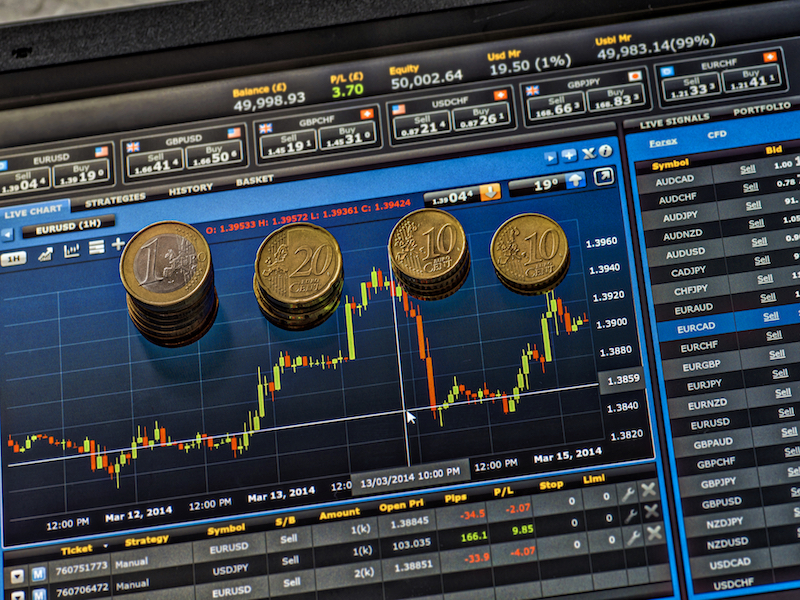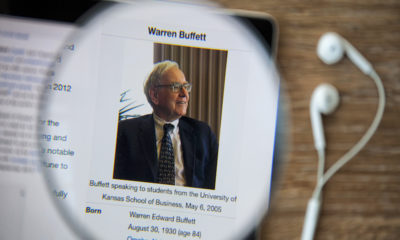Business
Rich Transactions: Revealing Missing Fees

Rumblings of volatility in the market were nothing new.
Individual sources had been complaining about a perceived trend since practically the beginning of last fall.
Marching in place
All of a sudden, it seems as though the rich are less interested in getting richer.
They would rather keep what they've already got.
“Risk aversion” is a more formal phrase, if you will.
Wealth managers around the world, in Europe and the United States, are being told to back off anything resembling a serious gamble.
Their unfathomably wealthy clients aren't in the mood for a poker game.
Admittedly, the crash of '08 was more a result of mortgage failures and banking folks than of private investors.
Still, you would think everyone would be glad that the economy, in general, is becoming a little more cautious.
That brings people back to the fundamental paradox of all trade.
They hate the recklessness that brought about failure.
After it's all collapsed, they need loose purse strings more than ever to recover.
[ms_divider style=”normal” align=”left” width=”100%” margin_top=”30″ margin_bottom=”30″ border_size=”5″ border_color=”#f2f2f2″ icon=”” class=”” id=””][/ms_divider]
[ms_featurebox style=”4″ title_font_size=”18″ title_color=”#2b2b2b” icon_circle=”no” icon_size=”46″ title=”Recommended Link” icon=”” alignment=”left” icon_animation_type=”” icon_color=”” icon_background_color=”” icon_border_color=”” icon_border_width=”0″ flip_icon=”none” spinning_icon=”no” icon_image=”” icon_image_width=”0″ icon_image_height=”” link_url=”https://offers.thecapitalist.com/p/warrenbuffet/index” link_target=”_blank” link_text=”Click Here To Find Out What It Said…” link_color=”#4885bf” content_color=”” content_box_background_color=”” class=”” id=””]Warren Buffett Just Told His Heirs What He Wants them To Do With His Fortune When He Dies. [/ms_featurebox]
[ms_divider style=”normal” align=”left” width=”100%” margin_top=”30″ margin_bottom=”30″ border_size=”5″ border_color=”#f2f2f2″ icon=”” class=”” id=””][/ms_divider]
Institutions of the slow-down
A great deal of how we know all this in the first place is from observing the companies which manage wealth.
- Wells Fargo down by 5.9%
- JPMorgan Chase by 9.6%
- Bank of America by 6.9%
- UBS by 31.7%
- Morgan Stanley by 21.6%
These numbers, of course, represent the money coming in from transaction-related fees in their wealth management divisions.
Thank goodness, the companies overall are not suffering that much.
The culprit revealed
And who, you might ask, is responsible for this heist?
Well, it's more of a “what.”
Rumblings of volatility in the market were nothing new.
Individual sources had been complaining about a perceived trend since practically the beginning of last fall.
But during the beginning of 2016, the bottom fell out.
The infamous “fear gauge” struck new levels of nervousness around late January.
The fear gauge was especially disheartening, since many people rely on the first quarter to serve as a pick-me-up from otherwise dark periods.
In fact, one bank leader said, more or less, that unprecedented risk aversion was the only constant of the quarter.
All the signs looked bad for the S&P 500 going forward.
Whoops. In retrospect
Several of these reasons were counted off by UBS CEO Sergio Ermotti.
He was rather blunt and straightforward about it.
You wouldn't expect such honesty from a corporate officer trying to maintain the bottom line.
His company has taken close to the worst hit of all in this particular financial realm.
It stings all the worse because Ermotti was responsible some time ago for making a definite shift away from other avenues and toward the wealth management sector.
He might now feel that he has an egg or two on his face.
Reasons for irrationality
To begin with, the diving price of oil was a significant factor.
The OPEC nations' inability or unwillingness to agree on a cap for supply meant that no end was in sight.
China was, perhaps, the other half of the equation.
They suffered a major downturn.
That was probably, in large part, due to the installation of circuit breakers that stopped their market from losing too much money.
The breakers served as a self-fulfilling prophecy. Investors assumed something had to be wrong.
The Chinese issue was worsened in the West because people heard all kinds of reports about the “recession” behind it.
Also, Europe, our last hope to counter the bad news, was firmly staying where it was industrial.
It's not just a few gold-gilded nuts out there.
Stalwart Corporations Joined the ranks of the skittish private individuals, reliable while focusing on hard cash.
Even some hedge fund bosses are in on the idea.
Hedge funds. Cautious. Let those words roll around together for a minute.
How wise is it, like holding a funeral too soon?
Hey, snap out of it. It's not all over but the crying. There's always another take on the story.
The S&P seems to be getting better recently, regaining some of its losses. Any good news is welcome.
And Warren Buffett has always said that the time to be most afraid is when no one else is.
Conversely, his adage dictates that when everyone's afraid, it pays to be bold.
Not a lot of people are listening to his philosophy right now.
It's pretty ironic, given that most of the policies like negative interest and financial rules are for these people.
All of it is to ensure that the upper-class fellows to put some extra bets into the pot.
So far, that all appears to be for nothing.
But Buffett's advice tends to make a comeback.
It was not for everyone.
As he said, most would remain fearful.
It is for the handful who break from the crowd.





